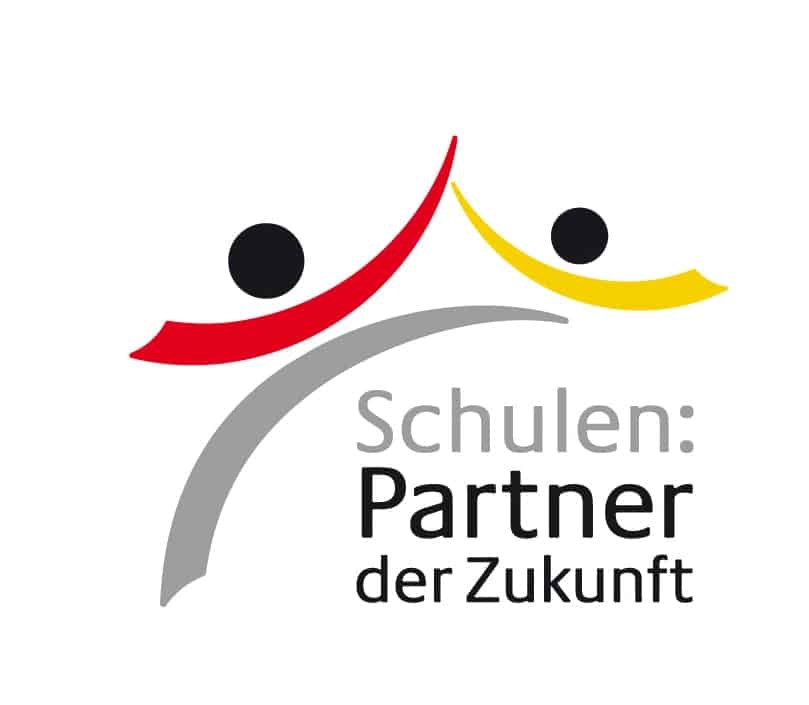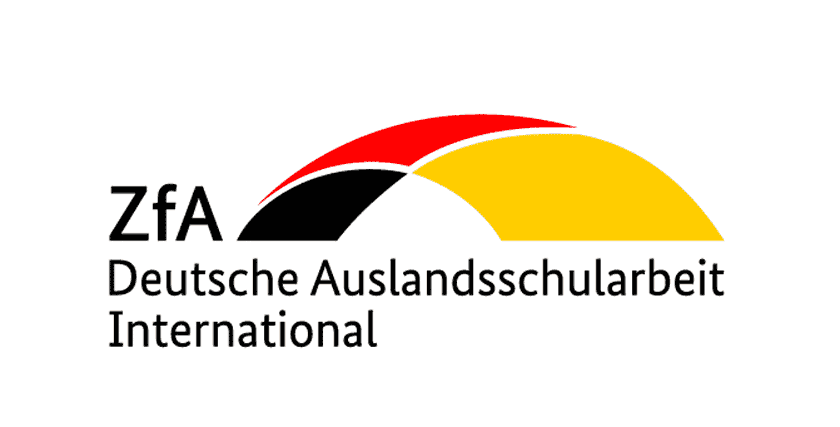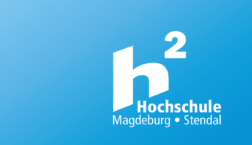University in Germany
Our university is young, dynamic and friendly, with approx. 6,000 students. A major aspect of this is that students study in small groups and receive comprehensive support from our 130 professors. Extensively renovated buildings with state-of-the-art laboratories and studios, cutting-edge technology, computer pools, libraries and free wireless internet access provide excellent conditions for our students. Our university in Germany offers a wide variety of study programmes: from Mechanical Engineering and Business Administration to Psychology of Rehabilitation, Sign Language Interpreting, Journalism, Technical Translationand Water Engineering, there is something for everyone!
It does not cost a lot to live and study in Germany: the price of food, accommodation, clothing, cultural activities and so on is significantly less than in other western European countries such as the Netherlands and the United Kingdom. If you want to study in Germany, the monthly costs can vary considerably. Where a student in Magdeburg or Stendal pays rent of €250 on average, the costs in, for example, Munich (€630), Frankfurt (€500) and Cologne (€430) are far higher. On average you will need around €450 per month for living expenses (subsistence and accommodation) in Magdeburg or Stendal. Our university does not charge tuition fees. Students only pay a semester fee of €61 in Stendal or €110 in Magdeburg (this includes a tram pass for Magdeburg). So, as you can see, university education in Germany need not be expensive!
In the German higher education system there is a difference between universities and universities of applied sciences.
| University | University of Applied Sciences |
|---|---|
| equivalent Bachelor’s and Master’s degrees | |
| ideal for an academic career and/or research-based work | ideal for a quick entry into the job market |
| Study focus: theoretical | Study focus: practical |
| Major study effort and a lot of end-of-semester exams | practical exercises, group work, internships and company-based projects |
| up to 1000 students per lecture | a maximum of 100 students per lecture |
| barely any personal relationship with professors | personal connection with professors |
| no in-depth support possible | personal support |
| students must organise their own study programmes | organised in a school-like manner in a close, community like atmosphere |
The minimum wage in Germany is currently €9.19 per hour. Students often work under the so-called mini-job rule, under which they can earn up to €450 per month without paying tax or contributions to a retirement insurance scheme. Thanks to close contacts with local/German and international industrial partners, our students benefit early on from practical experience and important contacts for their professional lives. In addition, over 200 companies recruit students at the annual job fair on the university’s campus with lucrative job offers. The contacts made during students’ degree programmes often lead to a seamless entry into the world of work for graduates as well as higher starting salaries compared to traditional university degrees. Engineering specialists are in particularly high demand in industry, whilst worldwide a German education is very highly regarded.
School pupils from abroad can apply for the BIDS scholarship before they commence their studies. The scholarship provides financial support amounting to €325 per month for the first year of studies.
Subsequently (from their 2nd year of studies) international students can apply for further scholarships such as the Otto von Guericke Scholarship (€500/month for one year), the Deutschlandstipendium (Germany Scholarship) (€300/month) or the DAAD prize (a one-off payment of €1000).
Like in many universities in Germany, students live either in a student hall of residence or a room in a shared apartment. Rent costs between 200 and 280 euros per month.
Once you have received an offer of a study place, you will need to look for accommodation yourself. The university can help with the search.
There is sufficient value-for-money accommodation in both Magdeburg and Stendal. In Germany, shared apartments (known as Wohngemeinschaften or WGs) are especially popular among students as they complete their education. Several students live together in an apartment. Each has their own room, but all of them share the kitchen and bathroom. The advantages are that living in a WG is cheap, it is easy to get to know other people and often also to improve your German language skills. Magdeburg is one of Germany’s cheapest cities and offers plenty of options for studying or training in Germany.
There are plenty of catering outlets on the Magdeburg and Stendal campuses for all students. The refectory serves a variety of hot meals daily, plus salads and desserts at low prices. A lunch (including drink) costs approx. €3.50.
In addition, there are also cafés on campus serving cakes and speciality coffees. For a quick snack in between times, an ice cream or a cold drink, students can also use one of the many vending machines. Chilled water, sparkling or still, is available free of charge to all students from the water dispensers.
- Nationals of EU member states do not need a visa to study in Germany
- Nationals of non-EU states can find the current visa requirements on the website of the German Federal Foreign Office
Students who are citizens of non-EU countries must demonstrate when applying for a visa that they have sufficient financial means (currently €853 per month) for the first year of their studies.
The German healthcare system is considered to be one of the best in the world. Anyone studying at a German university or university of applied sciences must be insured by a health insurance scheme, either in Germany or abroad. A foreign health insurance scheme must match the minimum standards of a German health insurance provider.
In case of emergency, assistance is available as well as emergency admission to hospital. The services required are free of charge for insured persons. An emergency doctor or ambulance can be reached at any time on the freephone number 112.
Compared to many other countries, Germany is a safe country. There is no need to worry excessively about crime. It is possible to walk around freely here without taking any special safety precautions, both in the major cities and the countryside, be it during the day or at night. The police are trustworthy and provide reliable assistance. They can be reached from any telephone in Germany on the freephone number 110.
Winter semester: 1 October – 31 March
Summer semester: 1 April – 30 September
Prospective students with foreign qualifications
must apply via: uni-assist.de
Prospective students with German qualifications
can apply via: onlineservice.h2.de
Almost every study programme offered by the university is taught in German. For engineering and economics courses, evidence of language skills at level B2 is required.
In addition to the DSD II certificate (level B2 or C1), the university also accepts other language certificates. Click here for an overview of other language certificates
Application deadlines for the winter semester
For programmes with admission restrictions*
With foreign qualifications: by 31.05.
(and submit your certificate by 19.06.)
With German qualifications: by 15.07.
*An admission procedure is carried out to award study places.
For programmes with an aptitude test
With German or foreign qualifications: by 31.05.
(and submit your certificate by 19.06.)
For programmes with no admission restrictions*
With foreign qualifications: by 15.08.
With German qualifications: by 15.09.
*Anyone who meets the admission requirements and applies in due form and time will be admitted to the course.
Application deadlines for the summer semester
For ALL PROGRAMMES
With German and foreign qualifications: by 30.11.
Cooperative Degree Programmes
A cooperative degree programme combines alternating blocks of training in Germany in a company of your choice (practical work) with a degree course at a German university of applied sciences or a traditional German university.
This means that academic study is combined with practical application. Alongside the Bachelor’s degree, students also obtain a state-recognised diploma for their training in Germany. This means that the student is also an employee of the company and will receive a regular salary during their training abroad.
Cooperative degree programmes at university
Complete a training programme in Germany and a degree at the same time!
Available programmes: Business Administration, Civil Engineering, Electrical Engineering
www.h2.de/studium/duales-studium
Study Taster Session or School Trip
International school pupils have the opportunity to sample everyday life as a student and experience what it is like to get a university education in Germany. They can explore the campus and laboratories, take part in lectures, get to know students and immerse themselves in the cultural life in Magdeburg or Stendal.
Applying to study in Magdeburg or Stendal directly on site
International pupils have the opportunity to individually familiarise themselves with Magdeburg-Stendal University of Applied Sciences during a two-day stay, and to apply for a study place whilst they are here. This means that anyone who prefers not to apply via the university’s online applicant platform, can also apply on site in person. Depending on the choice of degree programme, they will receive a provisional acceptance straight after applying. In addition to applying for a study place, the pupil will be provided with all of the information they need regarding university offers, and about living and studying in Magdeburg or Stendal. The accommodation for the two-day stay will be paid for by the university. Travel costs must be funded by the pupil.
Subscribe to our newsletter and never miss an offer.
Information events at schools abroad
Through interactive talks and presentations we tell international pupils everything they need to know about studying and living in Germany: how much does a degree cost in Germany? How do I apply for a Bachelor’s degree programme? What do I need to know about university education in Germany? We can answer pupils’ questions on the spot at our information events in schools.
Is there interest in holding a presentation in your school? Then please write to bids@h2.de
Late Summer School
With its two week-long Late Summer School (LSS) programme for new students, Magdeburg-Stendal University of Applied Sciences is one university in Germany that offers a preparatory programme.
After all, undertaking a university education in Germany is something completely different for new students from abroad. The preparatory programme includes subject-specific courses and project work as well as a welcome party, excursions and leisure activities. Ideal for getting to know the university, town and fellow students before your course begins!
www.h2.de/lss
Mentoring Programme (support for new students)
When they begin their programmes, new students receive subject-related advice and support from students in higher semesters – the mentors – from their departments.
www.h2.de/mentoring
Buddyprogramm (personal support with numerous events)
Our German-speaking university buddies are available to international students with advice and help: from arrival in the new town to support in their everyday lives as students and subsequently looking for an internship. They help them to feel at home in Magdeburg and Stendal and to become more familiar with the German culture and language.
www.h2.de/buddyprogramm
General Studies (further education programmes)
General Studies (Studium Generale) comprises courses that are highly beneficial for students’ degree courses, careers and lives in general. Examples of the available subject areas are computing skills, technical knowledge, internationalisation, creative skills, and languages.
www.h2.de/weiterbildung/studium-generale
Free German Language Courses
Unlike many German universities, students at Magdeburg-Stendal University of Applied Sciences can enhance their German language skills through free German classes.
http://www.studentenwerk-magdeburg.de/kultur/kreativworkshopsSports Courses
Every semester, a selection of over 100 sports courses is available to our students. From athletics, football, badminton and dance to Bodyfit or yoga, there’s something for everyone.
Cost: approx. €10 per semester
Creative Workshops
Every semester, Magdeburg Student Union offers students from German higher education institutions a multitude of creative workshops such as sewing, photography and the performing arts.
www.studentenwerk-magdeburg.de/kultur/kreativworkshops
Overview
There are over 50 different study programmes at Magdeburg-Stendal University of Applied Sciences. Many international students pursue engineering or economics degrees, such as Mechanical Engineering, Business Engineering or Business Administration. After gaining a Bachelor’s degree, the local labour market offers graduates excellent prospects of quickly entering a profession with excellent earning opportunities.
Selected courses offering EXCELLENT opportunities to enter the labour market:
Average starting salary after completing a Bachelor’s degree: €45,000 per year
Systems Engineering
Degree: Bachelor of Engineering
Standard study duration: 7 semesters
Location: Magdeburg
Course start: Winter semester
Admission restrictions: No
Language skills: B2
Closing date for applications: 15.08.
This programme addresses the interaction between mechanical and electronic engineering and information technology. Subjects such as mathematics, technical physics, computer science, robotics and methodical design lay the foundations for subsequent careers in the fields of analysis, design and the operation of electromechanical systems with man-machine interfaces. Graduates develop aircraft, operate complex systems such as power plants, or work in medical technology.
Mechanical Engineering
Degree: Bachelor of Engineering
Standard study duration: 7 semesters
Location: Magdeburg
Course start: Winter semester
Admission restrictions: No
Language skills: B2
Closing date for applications: 15.08.
A degree in Mechanical Engineering is the foundation for a wide variety of fields: not only can graduates work in all areas of machinery and vehicle manufacturing, but also in plant and electromechanical engineering, precision engineering (e.g. aerospace and medical technology) and other metal-processing industries. The course conveys skills in mathematics, physics and computer science. Students can also choose between two areas of specialisation: Engineering Technology and
Production Engineering.
Electrical Engineering
Degree: Bachelor of Engineering
Standard study duration: 7 semesters
Location: Magdeburg
Course start: Winter semester
Admission restrictions: No
Language skills: B2
Closing date for applications: 15.08.
This innovative degree programme prepares students for a career in the modern electrical engineering fields of power, communication and automation engineering. Students can choose between areas of specialisation in energy technology and automation and communication and acquire skills in the fields of analysis, design and operation of electrical systems. After completing their degree they can, for example, develop industrial robots, plan control systems or energy plants and networks or conduct research into the communications technologies of the future.
Human-Technology Interaction
Degree: Bachelor of Engineering
Standard study duration: 7 semesters
Location: Magdeburg
Course start: Winter semester
Admission restrictions: No
Language skills: B2
Closing date for applications: 15.08.
This innovative degree programme prepares students for a career in the modern electrical engineering fields of power, communication and automation engineering. Students can choose between areas of specialisation in energy technology and automation and communication and acquire skills in the fields of analysis, design and operation of electrical systems. After completing their degree they can, for example, develop industrial robots, plan control systems or energy plants and networks or conduct research into the communications technologies of the future.
Average starting salary after completing a Bachelor’s degree: €38,000 per year
Water Management
Degree: Bachelor of Engineering
Standard study duration: 7 semesters
Location: Magdeburg
Course start: Winter semester
Admission restrictions: No
Language skills: B2
Closing date for applications: 15.08.
Our bodies of water are used for water supply, energy generation, irrigation, navigation and for leisure and recreation purposes. During the programme, students will consider the medium of water in all its ecological, technological, structural and process engineering aspects. The practical content of this degree is high, and students will learn to take water samples, evaluate them in the laboratory and measure pH values. Graduates will, for example, find work with the authorities, water and sewage companies, consulting engineers or in research and teaching.
Recycling and Waste Management
Degree: Bachelor of Engineering
Standard study duration: 7 semesters
Location: Magdeburg
Course start: Winter semester
Admission restrictions: No
Language skills: B2
Closing date for applications: 15.08.
Every year the average German produces around half a tonne of waste. Students address ways of preventing, recycling, disposing of and eliminating this waste. The preservation of natural resources and protection of man and the environment take centre stage in the process. After successful completion of the course, graduates will be able to plan and construct waste industry apparatus and equipment or work in environmental areas of industry and/or in monitoring authorities.
Average starting salary after completing a Bachelor’s degree: €42,000 per year
Business Administration
Degree: Bachelor of Arts
Standard study duration: 7 semesters
Location: Stendal
Course start: Winter semester
Admission restrictions: No
Language skills: B2
Closing date for applications: 15.08.
Studying Business Administration prepares graduates for managerial roles in business organisations and offers a broad range of future career possibilities. Students become qualified for challenging tasks in all commercial areas as well as in middle management. They also acquire a high level of occupational competence and soft skills enabling them to work effectively in a wide variety of industries – for example in industrial companies, service companies or non-profit organisations – in various business management functions.
Business Engineering
Degree: Bachelor of Arts
Standard study duration: 7 semesters
Location: Magdeburg
Course start: Winter semester
Admission restrictions: No
Language skills: B2
Closing date for applications: 15.08.
In contrast to a degree programme that deals solely with Electrical Engineering or Mechanical Engineering, Business Engineering deals with additional business management components. Careers in areas where the two fields overlap are becoming increasingly important. For this reason, students receive a basic grounding in business and economics, and in addition can choose to specialise in either Electrical or Mechanical Engineering. Graduates are able to work in product development, consulting or logistics.
Journalism
Degree: Bachelor of Arts
Standard study duration: 6 semesters
Location: Magdeburg
Course start: Winter semester
Admission restrictions: Yes
Language skills: C1
Closing date for applications: 31.05.
Our world is becoming increasingly complex, with the media also undergoing ever more rapid transformations. On the course in Journalism, students are trained to be able to explain these complex relationships in simple terms and to be in a position to do so using a wide range of media methods, be they traditional or cross-media.
The programme conveys fundamental knowledge of the media and application-oriented skills for the preparation, planning and execution of media projects.
From the second semester, students can choose one of the following areas of specialisation: politics, society and the public realm, or media management.
DO YOU STILL
HAVE QUESTIONS?




